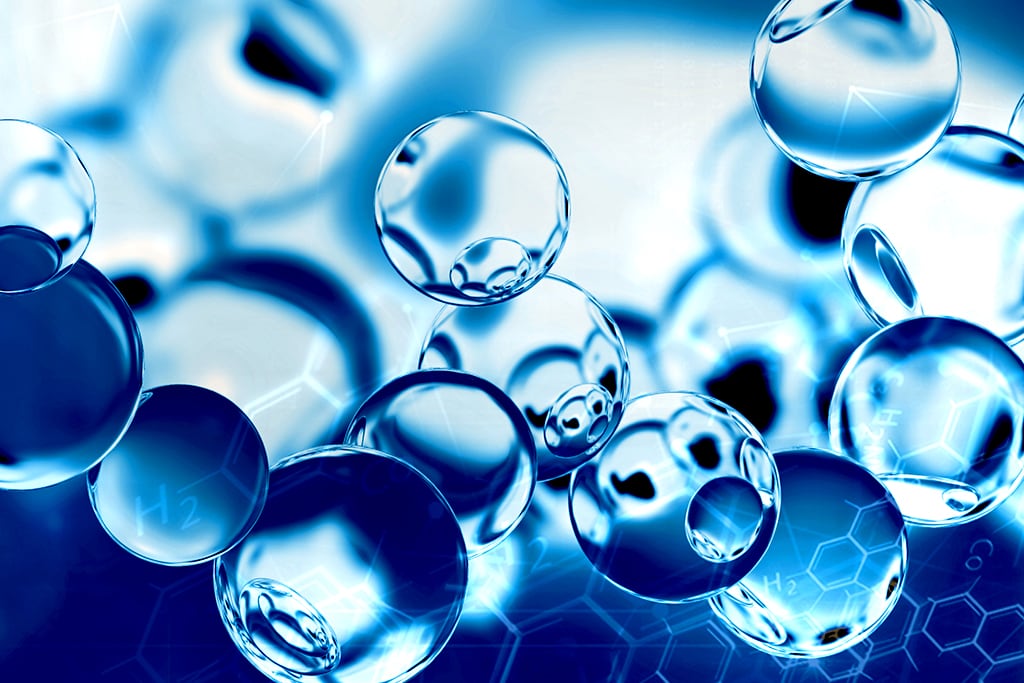Defoamers and Their Impact on Reducing Foam in Liquid Systems
Defoamers and Their Impact on Reducing Foam in Liquid Systems
Blog Article
Discover the Top Advantages of Utilizing Defoamers in Industrial Processes
The utilization of defoamers in commercial processes presents a range of engaging advantages that can improve functional efficiency and item quality. By efficiently managing foam manufacturing, these agents not only optimize material circulation but also add to substantial expense reductions and boosted sustainability. The implications of taking on defoamers may be more profound than originally viewed.
Improved Refine Efficiency
Enhancing commercial processes often entails attending to lathering issues, which can prevent operational effectiveness. Foam formation can disrupt the appropriate performance of tools, minimize the effective utilization of sources, and complicate the monitoring of essential parameters. By executing defoamers, markets can properly mitigate these concerns, leading to streamlined operations and boosted efficiency.
Defoamers work by destabilizing the foam structure, enabling rapid collapse and significant decrease in foam quantity. This action not just improves the flow of materials via tools, such as pipes, mixers, and activators, yet additionally decreases disruptions triggered by foam overflow. Tools downtime is decreased, allowing for an extra continuous and efficient manufacturing process.
In addition, using defoamers can result in decreased energy intake. With less foam to manage, pumps and compressors can operate a lot more successfully, leading to lower functional prices and a total enhancement in process throughput. Eventually, the critical use defoamers not only addresses prompt foaming difficulties however likewise contributes to a much more reliable industrial ecological community, fostering an affordable benefit in a demanding market.
Improved Product Quality
The assimilation of defoamers in industrial procedures plays an important function in enhancing product top quality. By successfully managing foam formation, defoamers contribute to the consistency and harmony of last products. Too much foam can cause aeration, which adversely impacts the structure and stability of formulations, especially in markets such as food and beverages, coatings, and pharmaceuticals.

Moreover, defoamers promote far better mixing and dispersion of active ingredients, bring about homogeneity in formulas. This is important in applications where precise active ingredient proportions are critical for efficiency and safety. Furthermore, the elimination of foam can decrease the danger of contamination throughout production, additional guarding item integrity.
Ultimately, by improving product high quality, defoamers not only boost customer complete satisfaction however likewise enhance brand name online reputation. Their duty in keeping top notch requirements underscores their significance in modern-day commercial procedures.
Cost Reduction Benefits
Executing defoamers in commercial procedures can cause significant expense reduction advantages. By effectively managing foam development, defoamers minimize item loss during production, thus enhancing product usage. This reduction in waste translates directly right into lower basic material expenses, enhancing general functional efficiency.
Additionally, using defoamers can lower power consumption. Extreme foam can impede equipment performance, leading to raised power demands to preserve manufacturing degrees. By reducing foam, defoamers assist in smoother operations, permitting machinery to run much more successfully and minimizing power expenditures.

In addition, defoamers can reduce processing times. By utilizing defoamers, sectors can simplify their procedures, leading to faster turn-around times and improved throughput.

Environmental Impact Reduction
In industrial procedures, the use of defoamers plays an essential role in mitigating ecological effects connected with foam generation. Foam can result in significant functional ineffectiveness, causing increased emissions and waste generation. By efficiently controlling foam, defoamers aid preserve process efficiency, thus decreasing the find out this here general ecological footprint of procedures.
Additionally, too much foam can overflow control systems, resulting in spills that might infect soil and water resources. Defoamers help lessen this danger by making certain that frothing does not surpass recommended limits, promoting compliance with environmental regulations. This proactive technique not just safeguards communities however also improves the sustainability of industrial techniques.
Additionally, using defoamers can reduce power usage in numerous procedures. defoamers. Lowering foam development diminishes the demand for added energy-intensive procedures, such as boosted frustration or pumping, which may otherwise be required to handle foam. The adoption of defoamers straightens with broader sustainability goals by promoting power efficiency while decreasing the carbon impact of commercial tasks.
Inevitably, incorporating defoamers right into industrial operations is a calculated action that supports environmental stewardship and liable source management.
Adaptability Throughout Industries
Across various sectors, defoamers demonstrate remarkable versatility, adapting to the details requirements of varied applications. In the food and beverage field, for example, defoamers are essential to preserving item top quality by protecting against foam formation during processing, which can influence structure and flavor. In a similar way, in the pharmaceutical sector, defoamers make sure the stability of solutions, boosting item efficacy and uniformity.
In the chemical production realm, defoamers facilitate smoother procedures by lessening foam in response vessels, thus boosting yield and lowering downtime. The paper and pulp market counts on defoamers to improve the effectiveness of pulp handling and paper production, making certain optimal item stability. Additionally, in wastewater therapy facilities, defoamers play an essential duty in managing foam during oygenation processes, causing improved therapy end results.
The versatility of defoamers encompasses the oil and gas market, where they help in managing foam in drilling liquids and production procedures. By tailoring formulas to meet particular sector needs, defoamers serve as important devices that boost functional effectiveness, product high quality, and total procedure performance throughout a wide range of markets. Their versatility highlights their worth in modern-day commercial applications.
Final Thought
In conclusion, the utilization of defoamers in commercial processes offers numerous advantages, consisting of enhanced efficiency, improved item quality, significant price decreases, and favorable ecological impacts. Their ability to successfully control foam development contributes to operational continuity and resource optimization. The adaptability of defoamers throughout diverse industries underscores their crucial duty in promoting lasting methods and earnings. The assimilation of defoamers stands for a calculated approach to attending to obstacles related to foam management in numerous producing atmospheres.
Eventually, the strategic use of defoamers not just addresses immediate frothing challenges yet also contributes to an extra effective commercial ecosystem, cultivating a competitive advantage in a requiring market.
In industrial processes, the use of defoamers plays an essential role in mitigating ecological influences linked with foam generation. By effectively controlling foam, defoamers assist keep procedure efficiency, thereby decreasing the check general ecological footprint of operations.
In addition, in wastewater therapy facilities, defoamers play an essential role in managing foam this link during aeration processes, leading to enhanced treatment results.

Report this page